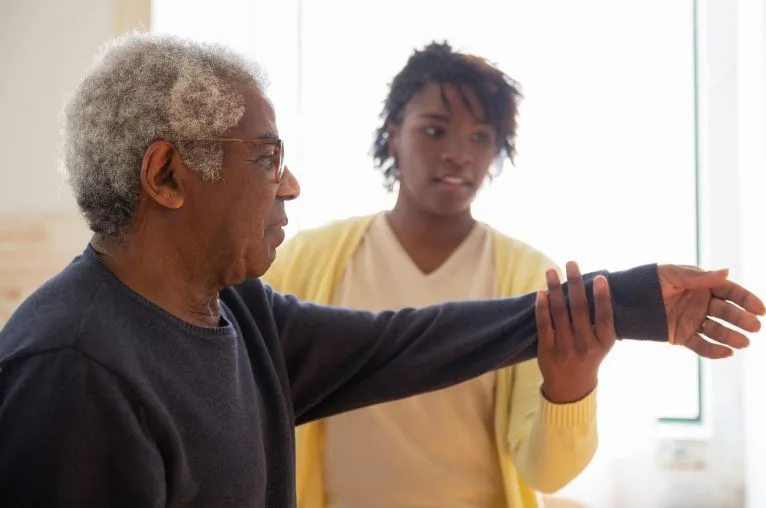When Is a Legal Guardian Necessary in New York?
In New York, guardianship is a legal process through which an individual is granted the authority to make decisions on behalf of another person who is unable to care for themselves or manage their own affairs.
This may include minors, adults with developmental disabilities, or seniors with dementia. Determining when a guardian is necessary requires evaluating the individual’s capacity, safety, and overall well-being.
Guardianship is not a one-size-fits-all solution. The courts take the appointment of a guardian seriously, and it typically involves a thorough investigation and judicial oversight. This blog explores when guardianship becomes necessary in New York, the types of guardianship available, how the process works, and how an elder law attorney in New York City can help with this.
Types of Guardianship in New York
New York law provides several different guardianship frameworks depending on the age and condition of the individual needing assistance. Each is designed to address specific legal, medical, and financial needs.
- Guardianship for Minors (Under 18 Years Old): A legal guardian may be appointed for a child if the parents are deceased, incapacitated, or unable to care for the child due to neglect, abuse, or abandonment. This form of guardianship grants the adult the legal authority to make decisions about the child’s education, healthcare, and general welfare.
- Article 17-A Guardianship (Developmentally Disabled Adults): Article 17-A of the Surrogate’s Court Procedure Act applies to individuals aged 18 or older who have been diagnosed with an intellectual or developmental disability. This type of guardianship is often pursued by parents of special needs children who are aging out of the educational system. It covers both personal and property decisions.
- Article 81 Guardianship (Adults with Diminished Capacity): Article 81 of the Mental Hygiene Law is used when an adult loses capacity due to an illness or condition such as Alzheimer’s, traumatic brain injury, or stroke. It is a more flexible form of guardianship and is tailored to the individual’s specific needs. The court may limit the guardian’s powers to only those necessary to protect the person and their property.
When Is Guardianship Necessary?
1. For Minors Without Parental Care
Guardianship becomes necessary for a minor when both parents are deceased, missing, or otherwise unfit to care for the child. In these cases, a family member, friend, or foster parent may petition the court to be appointed as the child’s legal guardian.
Other situations may include:
- Parents are incarcerated
- Parents are dealing with substance abuse or mental illness
- A child is an unaccompanied immigrant minor
- A relative wants to enroll the child in school or authorize medical treatment
Even when a parent is alive, guardianship may be granted temporarily if it serves the child’s best interest and the parent consents or is unavailable.
2. For Adults with Developmental Disabilities
Guardianship may be necessary when a developmentally disabled individual turns 18 and is legally considered an adult but cannot manage their affairs independently. Many of these individuals qualify for public assistance or benefits and require decision-making support related to:
- Medical treatment
- Housing
- Finances and budgeting
- Daily living
Without guardianship, parents or caregivers lose the legal authority to make these decisions once the individual becomes an adult.
3. For Adults Who Become Incapacitated
If an adult becomes incapacitated due to age-related decline, illness, or injury and has not executed a power of attorney or healthcare proxy, guardianship may be required to ensure their needs are met. This is particularly relevant in cases where the person is at risk of abuse, neglect, or financial exploitation.
Guardianship may be appropriate if the individual:
- Cannot manage finances or pay bills
- Refuses medical treatment despite serious health conditions
- Is easily manipulated by others
- Is isolated or showing signs of dementia
- Has no family or support network to step in
Article 81 guardianship allows for limited authority so the person retains some independence while receiving necessary legal protection.
What Does a Guardian Do?
The powers and responsibilities of a guardian depend on the type of guardianship granted. Courts strive to preserve as much autonomy as possible for the person under guardianship. In general, a guardian may be appointed to manage:
- Personal needs: healthcare decisions, living arrangements, education, and social services
- Property management: paying bills, managing income, protecting assets, and applying for benefits
- Legal matters: making decisions about contracts, lawsuits, or other legal issues
All guardians are fiduciaries, meaning they are legally required to act in the best interest of the person they are appointed to assist. Guardians are often required to submit regular reports and financial accountings to the court.
Who Can Serve as a Legal Guardian?
In New York, the court may appoint a guardian who is:
- A family member
- A close friend
- A professional such as an attorney, social worker, or fiduciary
- A public agency (e.g., the Mental Hygiene Legal Service or Adult Protective Services)
The court’s primary concern is that the proposed guardian is trustworthy, competent, and able to fulfill the responsibilities required. Background checks are often performed, and conflicts of interest are closely scrutinized.
The Guardianship Process in New York
The process for appointing a legal guardian in New York typically includes the following steps:
- Filing a Petition: An interested party must file a petition with the appropriate court (Surrogate’s Court for minors and 17-A guardianships; Supreme Court for Article 81 guardianships). The petition should include detailed information about the individual’s condition, living situation, and reasons why a guardian is necessary.
- Notifying Interested Parties: Notice must be given to certain individuals, such as the person alleged to be incapacitated, their spouse or family, and other legally interested persons.
- Court Evaluation: The court may appoint a court evaluator or attorney to investigate the circumstances, interview relevant parties, and make recommendations to the judge. In Article 81 cases, a hearing is required to determine whether the individual is indeed incapacitated.
- The Guardianship Hearing: At the hearing, the petitioner presents evidence and may call witnesses. The subject of the petition has the right to legal representation and to contest the appointment. The court decides whether a guardian is necessary and, if so, what powers should be granted.
- Appointment and Oversight: Once appointed, the guardian is given official documentation (commission) authorizing their actions. The court may require annual reports, accountings, and periodic reviews to ensure the guardian is fulfilling their duties appropriately.
Alternatives to Guardianship
Guardianship can be invasive and may remove a significant degree of personal autonomy. In some cases, less restrictive alternatives can provide the necessary support without involving the courts. These may include:
- Durable Power of Attorney: Allows someone to manage financial affairs
- Health Care Proxy: Authorizes medical decisions
- Living Trusts: Manage and distribute property without court involvement
- Representative Payee: Manages government benefits
- Supported Decision-Making Agreements: Allows individuals with disabilities to retain decision-making power with guidance from trusted advisors
These tools can often be set up in advance, reducing the need for guardianship later.
When Guardianship Is Contested
Disputes can arise when family members disagree about whether guardianship is necessary or who should serve. Contested guardianship cases may involve:
- Allegations of undue influence or exploitation
- Concerns over elder abuse
- Disagreements about who should be the guardian
- Questions about the individual’s mental capacity
In such cases, the court will examine the evidence closely, possibly appointing independent evaluators or holding multiple hearings. Mediation may also be used to resolve conflicts.
Knowing When to Seek Guardianship
Guardianship is a powerful tool, but one that should be used thoughtfully and as a last resort. It becomes necessary when a person is unable to make informed decisions, is at risk without intervention, and no alternative arrangements are in place.
Whether caring for a child without parents, a disabled adult aging into adulthood, or a loved one struggling with cognitive decline, understanding when guardianship is appropriate—and how to navigate the legal process—is critical.
Consulting with a qualified elder law or guardianship attorney can help ensure the proper protections are in place and that the process proceeds smoothly, with the dignity of the individual preserved.






